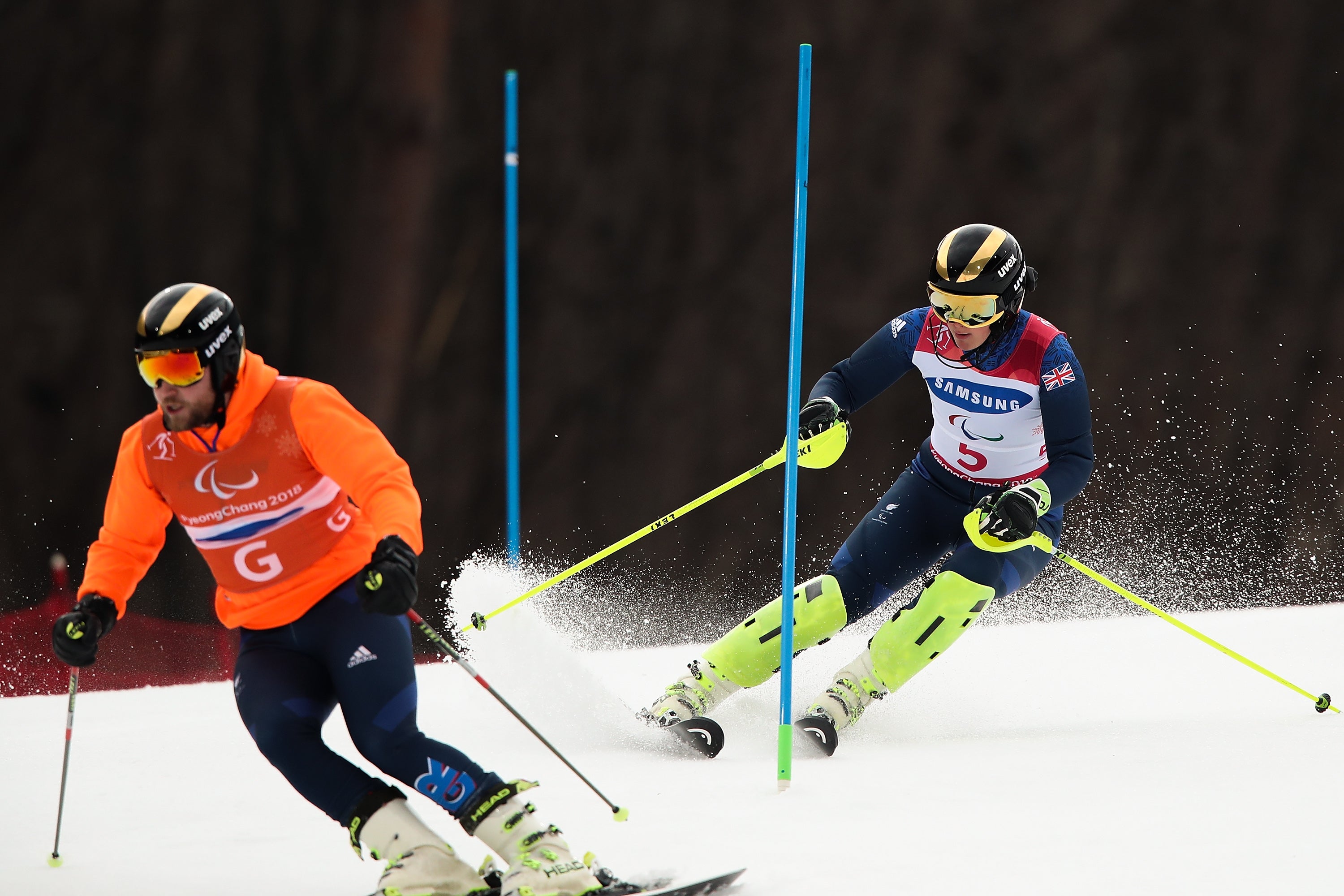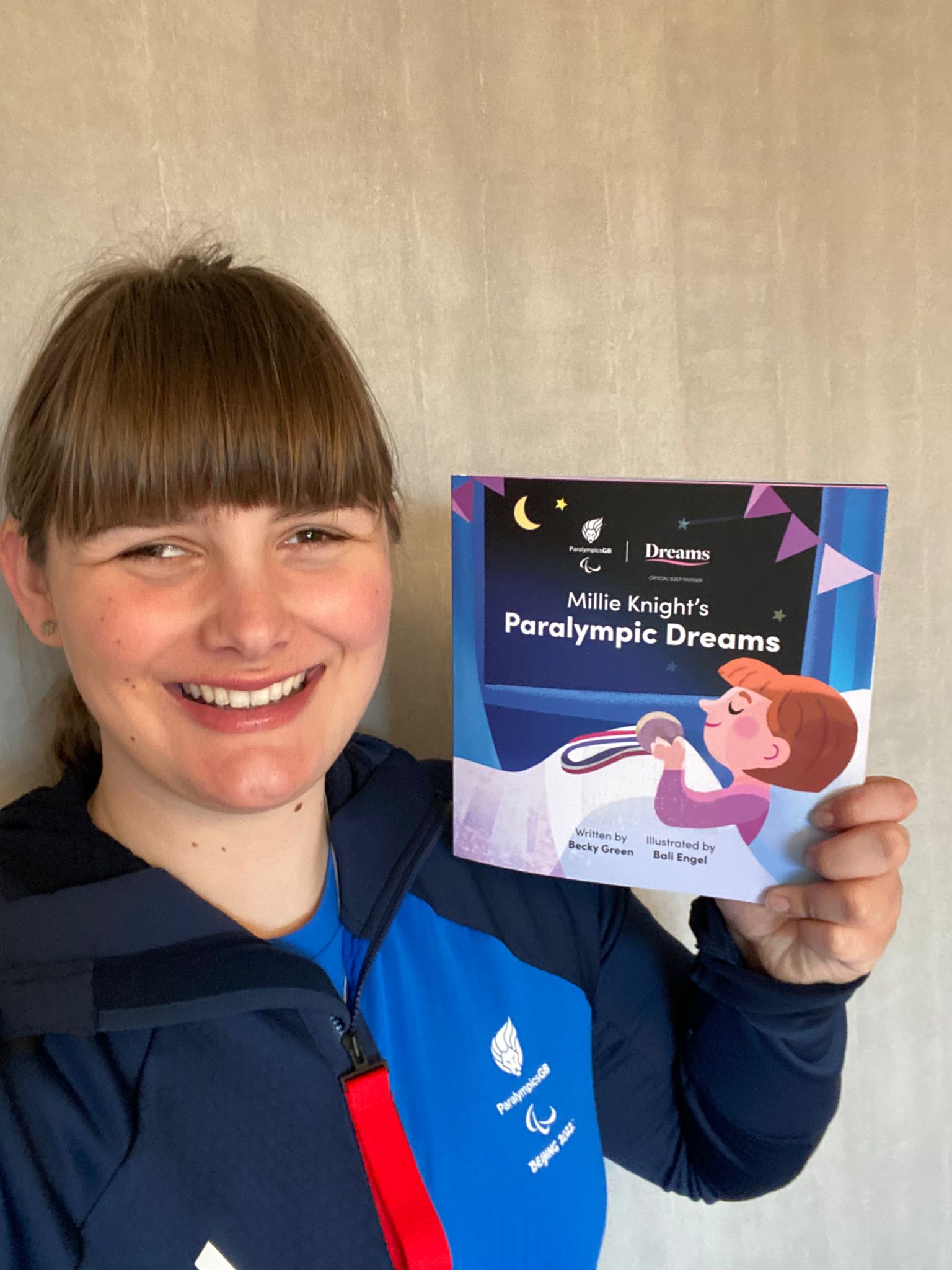Paralympic skier Millie Knight: ‘I flipped and landed on my head three times ... it affected me so badly’
Knight, whose story is being told in a new braille book, recovered from serious injury to win three medals in Pyeongchang and is aiming for gold in Beijing this month after overcoming her latest setback

Millie Knight is a name which will likely come to the fore of British sporting consciousness once again this month, eight years on from the day she became Britain’s youngest Olympic flagbearer at the Sochi Olympics aged only 15, and four years since the still teenage Knight won two silver medals and a bronze in Pyeongchang at the 2018 Winter Games.
Now 23, the visually impaired skier has arrived in Beijing with her guide Brett Wild – whom she follows at high speed and communicates via bluetooth earpiece – for the 2022 Paralympics aiming to go one better and win elusive gold. But whatever she achieves, Knight’s fearless talent and immutable spirit on our screens cannot tell her full story, one of perseverance and resilience after serious injury and of remarkable recovery from the darkest places.
It is being told in a new children’s braille book, launched by ParalympicsGB partner Dreams to inspire visually impaired children to keep active and follow their sporting ambitions. The book will also be released as an audio story and animated film, and Knight is excited by the prospect. “Enabling this book to be available on all platforms, whether it’s visual, audible, tactile with braille, it enables people like me to access it,” she tells The Independent. “The inclusivity that Dreams have built around this is fantastic.”
Knight’s young career has endured enough incident to fill an entire series of books. She had lost most of her vision by the age of six after contracting an illness but she loved skiing, an activity she quickly excelled at, and her mum became her first guide in early competitions before it was recommended she work with someone with a little more speed. Knight was one of those many modern athletes inspired by the London 2012 Paralympics. “It wasn’t like ‘this guy’s got one leg’, it was like ‘oh my days, this guy’s just jumped four metres’,” she says. “Their talent was the thing that was really cool. Then you had programmes like The Last Leg [on Channel 4] asking questions that people were too scared to ask normally.”

Her first major crash came at the World Championships in Italy in early 2017, one year out from the Pyeongchang Olympics she was so desperate to compete in. As she sped through the finish line she hit a compression in the snow and lost control, flying into some crash barriers where she lay stuck underneath for several minutes. It later transpired they had won downhill gold and her first world title. “It was worth it,” she smiles.
She was back on her skis three weeks later in South Korea for the Paralympic test event where, in the super-G race, she once again crashed at the finish. “I tried to stop in one turn and obviously when you’re going over 100km/h you can’t do that,” she says. “I tried to stop and then turn, and I flipped and flipped and flipped and flipped and landed on my head three times. I dislocated my jaw and blood was all over the snow.”
Knight can barely remember being taken to hospital in Seoul, where she was treated for injuries which included severe concussion. “It was pretty hideous,” she says. “I couldn’t really do anything. Walking was difficult because my balance was completely gone. Any bright lights, noises – I couldn’t look up without feeling sick. Everything was just difficult, it affected me so badly.”
It was another six months until she was back on snow, but even then – only six months out from the Games – she was nowhere near ready to compete. “We flew to Chile in August and it was just horrendous. We just did snow ploughs for like a month because that was the only speed I could cope with. I was absolutely terrified, the fear was beyond imaginable.”
With the help of her support team, including Team GB’s sports psychologist Kelley Fay, Knight gradually rebuilt her confidence. “She understood me as an athlete and as a person,” Knight says of Fay. “She knew when to challenge me, when to push me and when to just empathise and understand.” Fay recommended a hypnotherapist and Knight was initially sceptical. “A hypnotherapist? What, he’s going to wave a clock in front of me? But it was unbelievable the way he reformatted my brain to make me think positively about crashes. He somehow made me laugh when thinking about my crash.”

Gradually the people around Knight helped her embrace the enormous adversity, and her performance levels returned in time, remarkably, to win three medals in Pyeongchang. Fay in particular was key in making her believe in a triangle of trust – Knight trusted her guide Brett, who trusted her, which meant she should trust herself. “Kelley’s work was just unbelievable so I credit those results to her.”
A decade on from the London Games which so inspired her, Knight is ready for her third Paralympics and another shot at gold. Once again she has had to go through the process of crash and recovery to get to the start line, after tumbling in February last year and suffering another concussion. It took more months, but experience overcoming the psychological hurdles en route to Pyeonchang gave her the belief to come through again. Now, who would doubt her to add more medals to the story.
Para-Alpine Skier, Millie Knight and bed specialist, Dreams have teamed up to create a free braille bedtime story inspired by her incredible Paralympic journey, marking the beginning of the Beijing 2022 Paralympic Winter Games, for more information visit the Dreams Sleep Matters Club.
Join our commenting forum
Join thought-provoking conversations, follow other Independent readers and see their replies
Comments